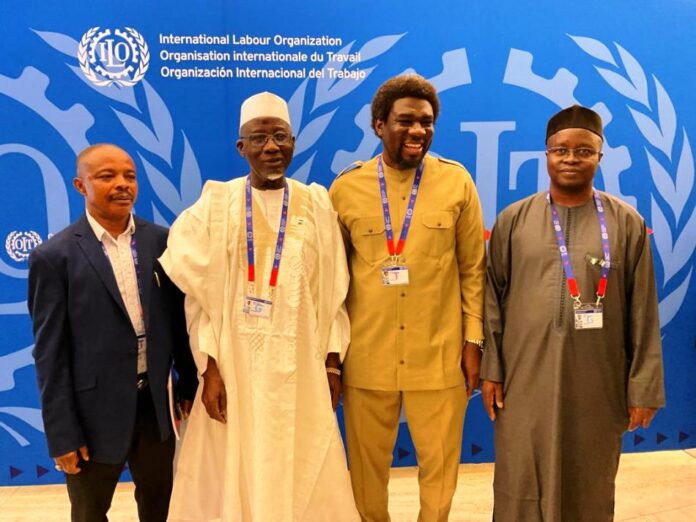By Bimbola Oyesola
The International Labour Organization (ILO) has reaffirmed its commitment to advancing the social and solidarity economy (SSE) in Africa.
The ILO, at a high-level roundtable in Nairobi, Kenya, recently highlighted its collaboration with the African Union and other partners in support of inclusive, rights-based development across the continent.
The ILO participated in the high-level roundtable, “Unlocking the Social and Solidarity Economy in Africa”, held in Nairobi in May.
Organized by the Schwab Foundation for Social Entrepreneurship, in collaboration with the ILO, the World Economic Forum, the Government of Kenya, the African Union, Africa Forward (Catalyst 2030) and the Motsepe Foundation, the event brought together leaders and experts from government, intergovernmental organizations, civil society, academia and the private sector to explore how the SSE is driving inclusive and sustainable development across the African continent.
During the session “Unpacking the African Union’s Strategy on the Social and Solidarity Economy”, Caroline Njuki, Chief Technical Advisor for the ILO in Kenya, highlighted the ILO’s support for the African Union’s Ten-Year Social and Solidarity Economy (SSE) Strategy and Implementation Plan (2023-2032).
It aligns with the UN General Assembly resolutions on promoting the SSE for sustainable development (2023, 2024) and ILO resolution, strategy and action plan concerning decent work and the SSE.
Across the continent, the ILO provides technical support to governments to develop or revise national SSE frameworks, working with national statistical offices to improve data collection on SSE, and promoting inclusive finance mechanisms that enable SSE entities to grow while safeguarding their autonomy. The ILO also supports cooperative movements and wider SSE ecosystems through tailored training and institutional strengthening, including innovative programmes focused on youth and women.
“The ILO stands proudly alongside the African Union, African countries, and our global partners to build economies where solidarity, democracy, and decent work are not add-ons but foundations,” stated Caroline Njuki, Chief Technical Advisor for the ILO in Kenya
Caroline Njuki also shared highlights from the joint ILO-AU research on the SSE, in line with the AU strategy’s call to “promote inter-African research and development cooperation on the SSE.
The mapping study conducted in six countries—Egypt, Nigeria, Zambia, Kenya, the Democratic Republic of the Congo, and Madagascar— revealed both the diversity and shared characteristics of SSE ecosystems across the region.
While the levels of legal recognition and government support vary by country, most SSE entities are small, community-based and often operate informally.
The global body noted that, “They make significant contributions to job creation, social protection and inclusion, especially for women and persons with disabilities.”
The research also pointed to common challenges, including policy incoherence, limited resources and weak governance structures. The findings underscore the need for stronger policies, enhanced capacity-building, and greater coordination to unlock the full potential of the SSE in Africa.
The AU Ten-Year SSE Strategy and Implementation Plan (2023-2032) sets the stage for significant transitions in Africa’s SSE landscape. The effective implementation of the strategy entails establishing a conducive environment consistent with the nature and diversity of the SSE to promote decent work, and to respect, promote and realize the fundamental principles and rights at work, other human rights and relevant international labour standards.
The global body said it remains committed to working closely with the African Union and other partners to ensure that the implementation of the Strategy results in effective, equitable, and sustainable transitions, directly supporting the aspirations of the AU Agenda 2063: The Africa We Want and the achievement of the Sustainable Development Goals.

